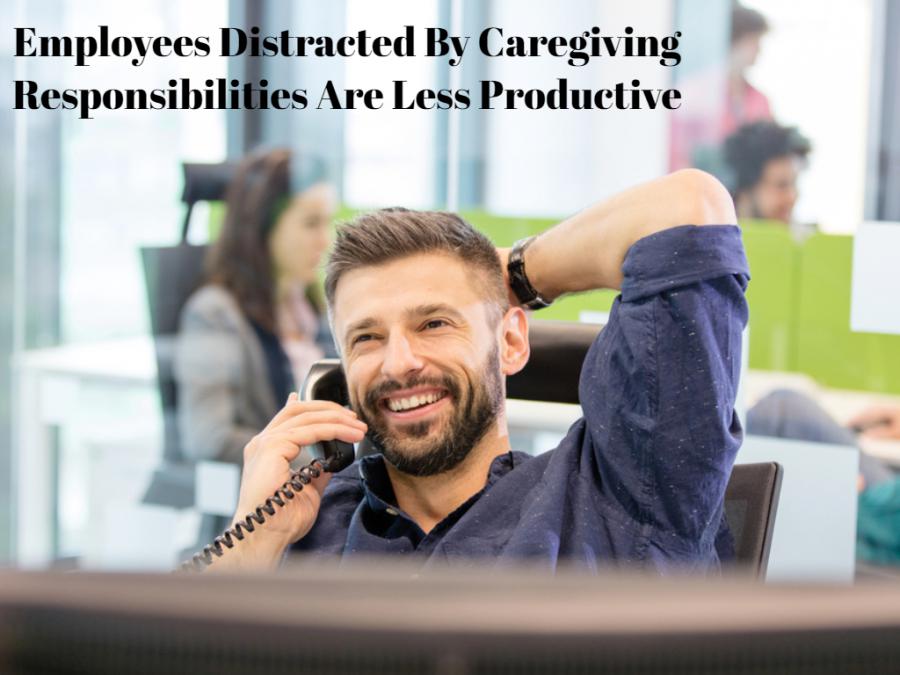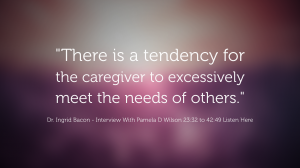
Taking Care of Elderly Parents and Working: Why Employees Are Distracted By Caregiving Responsibilities
Caring for aging parents is a workplace distraction that is manageable when corporations offer caregivers informational and emotional support programs
GOLDEN, CO, USA, July 12, 2021 /EINPresswire.com/ -- Employees Distracted by Caregiving Responsibilities Are Less Productive
Distractions are a significant barrier to workplace productivity in the office or when working remotely. According to research before COVID, Udemy (1) reports that 66% of employees have never talked to their managers about struggles with workplace distraction. Thirty-six percent of millennials and Gen Z say they spend two or more hours per workday looking at their phones for personal activities.
Add to these statistics the effects of COVID—including increased care responsibilities for taking care of elderly parents and the distractions of working at home that may include noise, working at a kitchen table, homeschooling children—employee distractions from completing work are through the roof. In addition, employees with low supervisory trust are hesitant to reveal areas of perceived weakness in work skills or personal lives.
Caring for Aging Parents is Distracting
Employees who have moved elderly parents into their homes, those managing medical care, or providing ongoing support in parents' homes experience constant distractions during the day. Communication with insurance companies, doctors, and other providers is limited to working hours. Elderly parents who are insecure about their needs or bored at home call their adult children at work multiple times a day.
Workplaces that fail to offer employee caregiver support will continue to experience lost productivity, absenteeism, and turnover. Employees receiving workplace support through education about managing traditional distractions of noise, interruptions, communication, and deadlines benefit from learning how to establish similar boundaries related to caregiving distractions.
Tech Distractions are Increasing Through The Use of Tech Apps to Manage Caregiving Responsibilities
How often are workers tempted to check personal email, texts, or scroll through Instagram or Facebook during working hours? Unfortunately, these self-inflicted attention swaps increase the difficulty of continuing to focus on a single task until completion. Eighty-four percent of workers estimate it takes 30 minutes after personal time swapping to refocus on work tasks.
According to a UC Irvine study (2), the cost of work interruptions is more significant stress, frustration, time pressure, and effort. These pressures—already part of the life of working adults caring for aging parents—build to the point of caregiver burnout and exhaustion. Some distractions—including the worry about the health of an aging parent or family conflict about care decisions—are ever-present in the minds of caregivers.
Technology advances that seek to make managing the care of aging parents easier increase time spent using smartphones and related devices. Virtual medical appointments, portal communication with physicians, apps to track parent safety in the home, and reminders to take medication—among a few—all add time to employees' daily schedules.
Using technology and initiating other time-saving efforts to manage the care of aging parents pose significant benefits when used effectively as part of implementing a care plan for parents. The issue for employed caregivers in establishing effective plans for care is usually the time to investigate options, share information, create the plan, and gain the support of elderly parents or other family members.
Employee Caregivers Struggle to Perform Unfamiliar Tasks
Conventional wisdom has adult children believe that they should know how to care for aging parents. However, complications and decision-making brought upon by the aging process and navigating the healthcare system are substantial even for healthcare workers.
With so much to manage—legal, financial, medical, communication, decision-making, and family relationships—caregivers are buried performing endless responsibilities. Many wonder how long they will be able to care for elderly parents and continue to work.
As a result, careers, health, well-being, family, and personal relationships suffer. Many caregivers devote an average of 20 hours a week outside of a full-time job in caregiving responsibilities. Supervisors and co-workers not involved in caregiving can be insensitive to the emotional, physical, and financial demands of caring for aging parents.
Support for working caregivers struggling to juggle work, caregiving, and family responsibilities includes offering access to information about resources, navigating care options, care planning, setting boundaries, and self-care to support well-being. While family caregivers feel a duty and responsibility to care for aging parents, this duty affects workplace productivity, career advancement, family relationships, and the caregiver's health.
Caregiver Support for Individuals, Corporations, and Groups
Wilson's mission to reach one million caregivers worldwide is supported by her passion for working with groups and corporations to provide keynote speaking sessions—live or online, webinars, and unique online or on-site education programs. In addition, she supports family caregivers and aging adults through her caregiving library, videos, The Caring Generation podcast, and 1:1 telephone or online eldercare consultations.
Contact Wilson for more information about caregiver support, resources, and education by emailing Inquiry_For_Pamela@PamelaDWilson.com or calling +1 303-810-1816.
Sources:
1) Udemy 2018 Workplace Distraction Report https://research.udemy.com/research_report/udemy-depth-2018-workplace-distraction-report/
2) Mark, G., Gudith, D and Klocke, U. The Cost of Interrupted Work: More Speed and Stress. https://www.ics.uci.edu/~gmark/chi08-mark.pdf
P Dombrowski-Wilson
Pamela D. Wilson, Inc.
+1 303-810-1816
Inquiry_For_Pamela@pameladwilson.com
Visit us on social media:
Facebook
Twitter
LinkedIn
Caregiving: Work Family Conflict and How to Ask for Help
EIN Presswire does not exercise editorial control over third-party content provided, uploaded, published, or distributed by users of EIN Presswire. We are a distributor, not a publisher, of 3rd party content. Such content may contain the views, opinions, statements, offers, and other material of the respective users, suppliers, participants, or authors.




